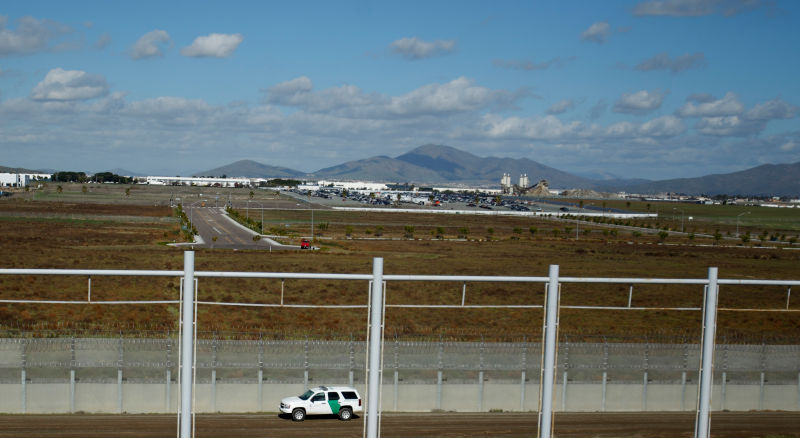On July 22, 2015, the US Department of Homeland Security (DHS) announced plans to expand the I-601A Provisional Waiver program. The announcement was met with cheers from most within the immigration community. Then we all waited.. and waited… and waited for DHS to review the public’s comments and publish the final rule. On July 29, 2016, that announcement finally came. But what does it really mean to you?
In the Beginning: Unlawful Presence and The Three and Ten Year Bars.
Imagine yourself the recipient of a perfectly-made homemade cookie. The cookie is gooey and chocolatey, and comes from Grandma’s secret recipe. Now imagine that Grandma’s gift comes with a condition: you must first step outside on the patio to get it.
You agree. After all, this singularly special cookie is worth the extra effort. When you step out, Grandma closes the screen door, locks it, and tells you that while that one, perfect, ooey-gooey cookie is reserved just for you, you must wait 3 or even 10 years to eat it. You find out Grandma is a neat freak, and you broke one of Grandma’s rules: you came into the house with your shoes. Waiting on the patio for 3 or 10 years before you get your cookie is your punishment.

Like Grandma’s special cookie, individuals unlawfully in the United States crave permanent residency, or their “greencards.” Many are married to United States citizens or lawful permanent residents (LPRs), are the parents of adult United States citizen children, have approved immigrant worker petitions, or are derivative beneficiaries of a principal immigrant. A large percentage have a basis of US immigration, but they lack eligibility to immigrate from within the United States through an Adjustment of Status application.
Some have entered the United States unlawfully; others entered lawfully, but overstayed their visas. But all share a common theme: they have to return to their home countries to finalize their greencard processes through the US consulates abroad.
The problem arises when immigrants leave the US to attend their consular interviews. Under INA sections 212(a)(9)(B)(i) and (ii), these individuals trigger a 3 or 10 year bar immediately upon their departure from the US.
Why? Subsection (i) states that any person who has been in the United States unlawfully for 180 to 364 days then departs the United States for any reason triggers a 3-year bar to returning to the US, even with an approved immigrant petition. Subsection (ii) ups the punishment for unlawful presence of 365 days or more: the departure creates a 10 year bar from any return.
The Lifesaver in the Storm: The I-601 Waiver

However, before March 4, 2013, individuals had to first depart the United States after approval of a qualifying form I-130 Petition for Alien Relative; present themselves at the US consulate for their immigrant visa interviews; receive the news – known or unknown – that they were inadmissible on the basis of the 3 or 10 year bars; and then file the I-601 waiver package with USCIS.
The processing time of the I-601 could vary from a few weeks in exceptional cases, to several months or years if denied and appealed. During this time, the immigrant was stuck in a foreign country, isolated from US-based family, and sometimes in regions of great strife and crime.
An Innovative New Program: The I-601A Provisional Waiver
On March 4, 2013, DHS released a groundbreaking program called the I-601A Provisional Waiver. Imagine that before ever stepping out on the patio for your cookie, Grandma alerts you of your transgression, and allows you to apologize. You still have to go outside to get the cookie – after all, the hand-off is when Grandma’s floor is most vulnerable to crumbs – but you can immediately return into the kitchen and eat your cookie at the dinner table with a glass of milk.
The I-601A program allows just this: individuals who know they will trigger the 3 and 10 year bars are able to ask for a “mea culpa” in advance of their departure, and while they still have to consular process, leave the US confident in their ability to return to the US in a timely manner to reunite with family.
From March 4, 2013 until July 29, 2016, the I-601A was limited to a single class of immigrant: Immediate Relatives, or the spouse, minor children or parents of adult US citizens. Further, anyone with a consular interview scheduled before January 3, 2013 was not eligible. The I-601A program has been very successful, despite some initial adjudication set-backs, but was lacking applicability to a larger class of immigrants.
Good Got Even Better: Expansion of the I-601A Program
Effective July 29, 2016, DHS has expanded the I-601A program in the following ways:
- The provisional waiver program now applies to anyone who has an approved Immigrant Visa Petition, including those in any of the family-based preference categories, diversity visa applicants, employment-based beneficiaries, and derivatives of any of these categories. Note that the I-601A still requires that the applicant prove extreme hardship to a US citizen or LPR spouse or parent under INA section 212(a)(9)(B)(v). However, many more applicants can take advantage of the pre-departure filing of the waiver.
- Prior to this new update, DHS could deny an I-601A if there was any “reason to believe” that the applicant was inadmissible on any ground other than simple unlawful presence. This led to a guessing game of sorts, and often I-601A applications were denied based on errors in the record or simple contact with DHS. This update has eliminated this provision, allowing for the approval of more I-601A applications. Of course, DHS reserves the right to revoke an approved I-601A at any time if the applicant is later found inadmissible under any other ground (like criminal or other immigration violations).
- Under the first I-601A provision, those with consular visa interviews scheduled before January 3, 2013 could not use the I-601A process. This update eliminates that date cut-off.
- The old rule prevented those with final orders of removal from filing an I-601A. Under the July 2016 update, those who have a final order of removal and are otherwise ready to consular process may use the I-601A. An I-212 waiver is still required for the removal order.
No immigrant should ever depart the United States for consular processing – immigrant or nonimmigrant – without first consulting with qualified immigration counsel. We welcome the opportunity to meet with you and review your case. Send us an email or call us at 858-451-6269 during business hours to set up your initial consultation.


 Alcoholism not a Valid Reason to Deny Deportation Relief: Ledezma-Cosino v. Lynch
Alcoholism not a Valid Reason to Deny Deportation Relief: Ledezma-Cosino v. Lynch

